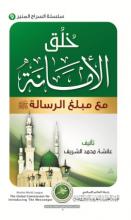The Prophet of Mercy Website
Muslim World League - Global Commission for Introducing the Messenger
Buwat Invasion. It took place in Rabi‘ Al-Awwal 2 A.H., i.e. 623 A.D. The Prophet (Peace be upon him), at the head of 200 companions, marched for Buwat to intercept a caravan belonging to Quraish comprising 100 Quraishites, Omaiya bin Khalaf among them, and 2500 camels. When he reached Buwat, the caravan had left. Before leaving Madinah, he mandated Sa‘d bin Mu‘adh to dispose the affairs until his return.
Safwan Invasion. In Rabi‘ Al-Awwal 2 A.H., i.e. 623 A.D. Karz bin Jabir at the head of a small group of polytheists raided the pastures of Madinah and looted some animals. The Prophet (Peace be upon him) at the head of 70 men left Madinah to fight the aggressors. He went in their pursuit till he reached a place called Safwan near Badr but could not catch up with them. This invasion came to be known as the preliminary Badr Invasion. During his absence, the Prophet (Peace be upon him) entrusted Zaid bin Harithah with the disposition of the affairs in Madinah. The standard was white in colour and entrusted to ‘Ali bin Abi Talib to carry.
Dhil ‘Ushairah Invasion. It was in Jumada-al-Ula and Jumada-al-Akhirah the first or second 2 A.H., i.e. November-December 623 A.D. The Prophet (Peace be upon him) at the head of 150-200 Muslim volunteers, with 30 camels which they rode turn by turn, set out to intercept a Quraishite caravan. He reached Dhil ‘Ushairah but the camels had left some days before. These camels were the same that he went out to intercept on their return from Syria, and were the direct reason for the break out of the battle of Badr. In the process of this campaign, the Prophet Õáì Çááå Úáíå æÓáã contracted a non-aggression pact with Bani Madlij and their allies Bani Dhumrah. Abu Salama bin ‘Abd Al-Asad Al-Makhzumi was mandated to rule Madinah in his absence.
The Platoon of Nakhlah. It took place in Rajab 2 A.H., i.e. January 624 A.H. The Messenger of Allâh (Peace be upon him) despatched ‘Abdullah bin Jahsh Asadi to Nakhlah at the head of 12 Emigrants with six camels. ‘Abdullah was given a letter by the Prophet (Peace be upon him) but was instructed to read it only after two days. He followed the instructions and discovered that he was asked to go on to a place called Nakhlah standing between Makkah and At-Ta’if, intercept a caravan for Quraish and collect news about their intentions. He disclosed the contents of the letters to his fellows who blindly obeyed the orders. At Nakhlah, the caravan passed carrying loads of raisins (dried grapes), food stuff and other commodities. Notable polytheists were also there such as ‘Amr bin Al-Hadrami, ‘Uthman and Naufal, sons of ‘Abdullah bin Al-Mugheerah and others... The Muslims held consultations among themselves with respect to fighting them taking into account Rajab which was a sacred month (during which, along with Dhul Hijja, Dhul Qa‘da and Muharram, war activities were suspended as was the custom in Arabia then). At last they agreed to engage with them in fighting. ‘Amr bin Al-Hadrami was shot dead by an arrow, ‘Uthman and Al-Hakam were captured whereas Naufal escaped. They came back with the booty and the two prisoners. They set aside one-fifth of the booty assigned to Allâh and His Messenger, and took the rest. The Messenger disapproved of that act and suspended any action as regards the camels and the two captives on account of the prohibited months already mentioned. The polytheists, on their part, exploited this golden opportunity to calumniate the Muslims and accuse them of violating what is Divinely inviolable. This idle talk brought about a painful headache to Muhammad’s Companions, until at last they were relieved when the Revelation came down giving a decisive answer and stating quite explicitly that the behaviour of the polytheists in the whole process was much more heinous and far more serious than the act of the Muslims:
“They ask you concerning fighting in the sacred months (i.e. 1st, 7th, 11th and 12th months of the Islamic calendar). Say, ‘Fighting therein is a great (transgression) but a greater (transgression) with Allâh is to prevent mankind from following the way of Allâh, to disbelieve in Him, to prevent access to Al-Masjid-Al-Harâm (at Makkah), and to drive out its inhabitants, and Al-Fitnah is worse than killing.” [2:217]
The Words of Allâh were quite clear and said that the tumult created by the polytheists was groundless. The sacred inviolable sanctities had been repeatedly violated in the long process of fighting Islam and persecuting its adherents. The wealth of the Muslims as well as their homes had already been violated and their Prophet (Peace be upon him) had been the target of repeated attempts on his life. In short, that sort of propaganda could deservedly be described as impudence and prostitution. This has been a resume of pre-Badr platoons and invasions. None of them witnessed any sort of looting property or killing people except when the polytheists had committed such crimes under the leadership of Karz bin Jabir Al-Fahri. It was, in fact, the polytheists who had initiated such acts. No wonder, for such ill-behaviour is immanent in their natural disposition.
Shortly afterwards, the two captives were released and blood money was given to the killed man’s father.
After this event, Quraish began to realize the real danger that Madinah could present with. They came to know that Madinah had always been on the alert, watching closely their commercial caravans. It was then common knowledge to them that the Muslims in their new abode could span and extend their military activities over an area of 300 miles. and bring it under full control. However, the new situation borne in mind, the Makkans could not be deterred and were too obstinate to come to terms with the new rising power of Islam. They were determined to bring their fall by their own hands and with this recklessness they precipitated the great battle of Badr.
The Muslims, on the other hand, and at the behest of their Lord, were ordered to go to war in Sha‘ban 2 A.H:
******







